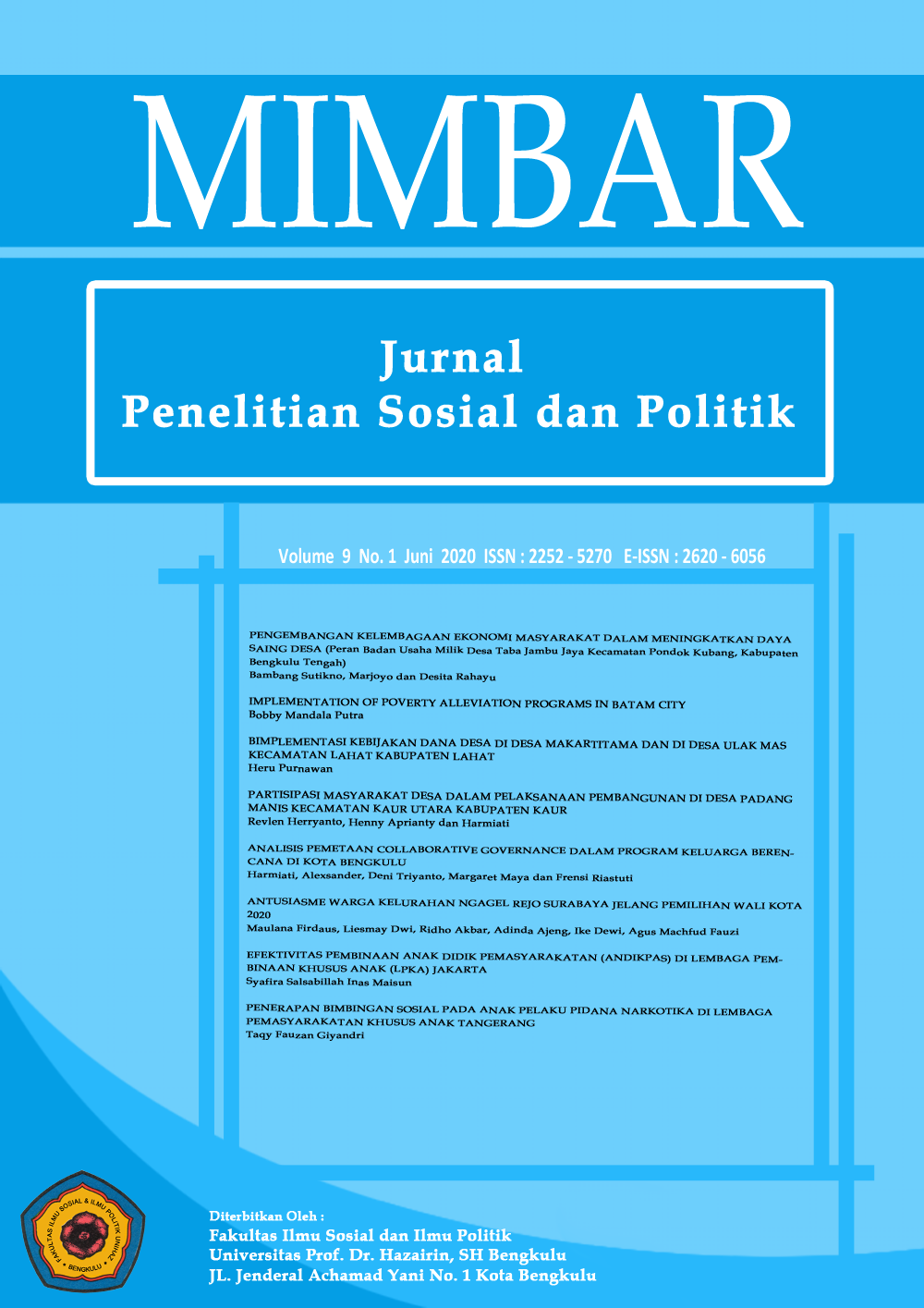EFEKTIVITAS PELAKSANAAN PEMBINAAN ANAK DIDIK PEMASYARAKATAN (ANDIKPAS) DI LEMBAGA PEMBINAAN KHUSUS ANAK (LPKA)
DOI:
https://doi.org/10.32663/jpsp.v9i1.1149Keywords:
Efektivitas, Pembinaan, Anak Didik Pemasyarakatan (ANDIKPAS), Lembaga Pembinaan Khusus Anak (LPKA)Abstract
In the process of child growth and development we often encounter the existence of deviant behavior patterns that are applied by children. Such deviant behavior can lead children to crime. As more criminal cases occur in children, the role of treatment is increasingly important. Children who have received a court decision are placed in the Juvenile School (LPKA). LPKA is a place to carry out treatment. This research uses the theory of effectiveness from Mahmudi. The purpose of treatment is to make juvenile acceptable to the community and not to repeat criminal acts/recidivists. The purpose of this study is to determine the effectiveness of correctional counseling in LPKA Jakarta and what factors influence the effectiveness of treatment. This study uses a qualitative descriptive approach with data collection methods through interviews and observations. Based on the conclusions of this study, the implementation of treatment in LPKA Jakarta has been going well but is still not effective because of several influencing factors that are not in accordance with the implementation of treatment that should be given to juvenile and there are still juvenile who are recidivists. There are several suggestions of researchers in this study, namely the government needs to pay special attention to LPKA Jakarta, LPKA Jakarta must collaborate with outsidsers and must increase treatment efforts to improve discipline and psychological discipline of juvenile, the need for counseling and socialization to the community, the role of officers must be more active in the implementation of treatment and provide juvenile with knowledge about the goals and benefits of treatment.
Downloads
References



